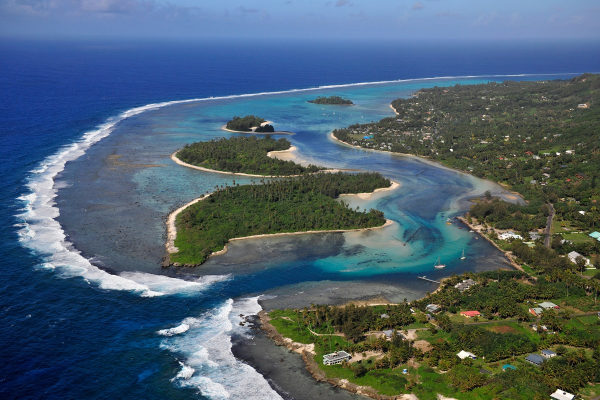News
Climate finance capacity building for Pacific Island countries

Pacific Island Countries (PICs) need funds to help strengthen their climate resilience in the face of increasing natural disasters; however, accessing funds from international sources has proved difficult in the past.
Prime, through its division Nimmo-Bell & Associates, is proud to have assisted the New Zealand Government in 2023 with a capacity building programme to help PICs access climate finance.
Prime Group Chairman Dr Alan Pearson says because PICs range from microstates to Papua New Guinea, with a population of 8m-plus, “they all have different issues and challenges, but also similar needs”.
While the pool of money is there to assist PICs in the face of climate impacts, Dr Pearson says, “they have historically struggled with having the resources and systems in place to access the finance”.
To address this, he says, Nimmo-Bell has been working on the design of a programme, which MFAT is investing in, that offers capacity building for PICs on a flexible basis.
Dr Pearson says he commends the New Zealand Government for its innovative solution to what has been an ongoing issue for decades.
The support is like a ‘hotline’ to technical support from an MFAT coach or mentor (although a third-party contractor is expected to run the service), with advice tailored to their specific needs at a specific moment in time.
“This is a unique programme that will fill gaps and help in ways that existing climate finance doesn’t.”
Dr Pearson says when designing the facility, the team first looked at the public financial management of the 15 target PICs, as well as their climate planning, project priorities and project management to inform the programme design.
“We essentially examined the whole cycle of planning to do something with climate funds – from accessing and administering the money in a traceable way, to creating a project and getting it done. We found varying levels of readiness amongst the different countries, which led us to design a readiness framework for inclusion in process.
“We discovered that there were these capacity gaps. For some PICs, it was in relation to simply applying for funds. For others, who had successfully applied for funds in the past, it was more about running into difficulties with implementation and/or transparency of reporting.
“The latter is an issue for PICs because one of the things donors are rightly hot on, as a condition of funding, is seeing results and impacts on the ground. It’s one thing to get the money, it’s another thing to be able to do the project when you’ve got the money.”
“If, for example, Fiji wanted to access climate funding to make the Port of Suva more resilient, or to improve rural water supplies… they need money. There are climate funds available, not just from MFAT, but they all have particular criteria to access the funds. PICs have struggled with having the people, skills, knowledge or resources in general to access the finance. This programme helps them get capacity building support from New Zealand to be able to access the money they need.”
- Dr Alan Pearson, Prime Group Chairman
Dr Pearson says an individual country’s “readiness”, according to the framework, will help inform the support it will receive from the capacity building programme. Then they should be in a better position to apply for the actual funds, which could come from bilateral funders or another international source, such as the Green Climate Fund.
“Once the programme is up and running, countries will be able to actively access it and get benefit from it. I really congratulate NZ Inc for coming up with this, because it is innovative, matching need with money and it has been like a stalemate for a long time, with more and more money sitting in a climate pool, more and more need, but no transactions.”



